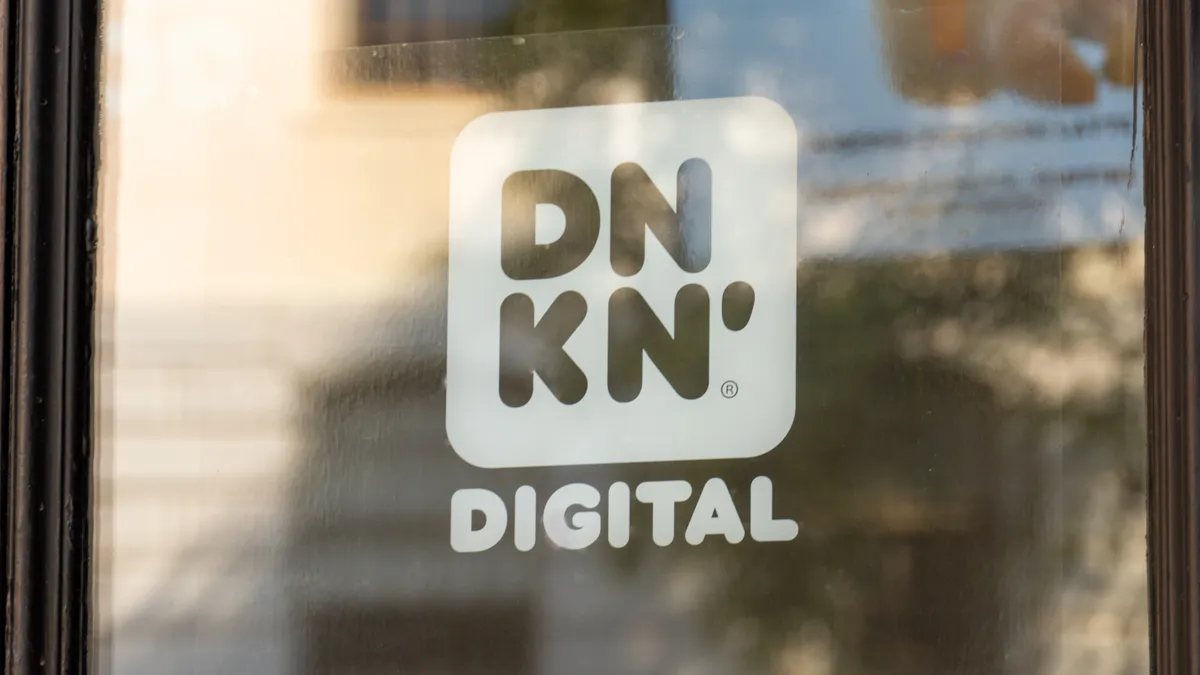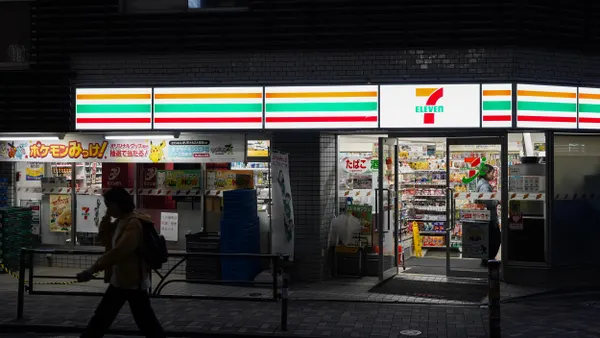CHICAGO — Inspire Brands is betting on the power of small restaurant models. Frank Inoa, Inspire's vice president of design and engineering innovation, told a panel on kitchen innovation at the National Restaurant Association Show on Sunday that the company has partnered with CloudKitchens to open ghost kitchen locations and will soon experiment with modular drive-thru units.
Inspire's first unit with CloudKitchen opened in January, but its interest in ghost kitchens goes back to 2021, when the company opened its own branded ghost kitchen, Alliance Kitchen, in Atlanta. Alliance Kitchen, at more than 2,000 square feet, serves food from five of the company's brands. Inspire's CloudKitchen unit, on the other hand, offers a single brand, Sonic, out of a 200-square-foot kitchen. In a similar move into small ghost kitchens, the company also launched a single Buffalo Wild Wings ghost kitchen with Reef in Texas, earlier this year.
Going forward, Inspire plans to open two Buffalo Wild Wings units with CloudKitchens in San Francisco and New York City later this year. The company is also negotiating a deal to open a unit at Nationals Park in Washington, D.C., which would serve Buffalo Wild Wings, Sonic and Arby's and operate as a ghost kitchen during the off season and when the Nationals are on the road. Inoa said the kitchen at Nationals Park would be similar in concept to Alliance Kitchen, but did not specify the differences between the two operational models. Inspire is also preparing for other potential ghost kitchen expansions.
"Our team has designed [ghost] kitchens for all of the brands, in case we start developing more of these CloudKitchens. We have templates ready," Inoa said.
While small ghost kitchens offer the ability to expand rapidly in urban markets where consumers are densely packed and real estate costs are high, Inspire is also looking at modular units optimized for drive-thru as another path to quick growth.
The company has developed a design for modular, drive-thru only locations for Arby's, Sonic, Jimmy John's and Dunkin' as well. The 900-square-foot format is similar to a drive-thru-only location owned by a Jimmy John's franchisee in Florida, Inoa said.
Inspire would first roll out modular Dunkin' and Jimmy John's locations, followed by Arby's and Sonic later. Both Dunkin' and Jimmy John's have at least one drive-thru only unit, meaning the brands already have operational experience with off-premise only stores.
"We still have to test the idea of an Arby's without a dining room and Sonic without stalls," Inoa said.
The design is still in its early stages, Inoa said, and Inspire is seeking bids from construction companies to build modular locations. These units may not be cheaper to construct than its traditional "stick builds," which can be 1,300 square feet in Arby's case. Traditional units are built on-site, and their framing, generally steel or wood, is assembled during the construction process.
By contrast, modular units are prefabricated off-site and are transported to their final site in whole or in large pieces. Modular units are faster to build, however, thanks to a single, standardized design that can be applied to Arby's, Sonic, Jimmy John's and Dunkin'.
Other QSR brands have dabbled in modular construction. Chick-fil-A built out a modular unit in late 2020, citing the speed of modular construction as an important advantage. While Globest.com reported that Taco Bell used modular construction to build one of its experimental units. Starbucks also built a modular store in Canada within six days through a partnership with Nexii in 2021.
This isn't Inspire's first foray into off-premise-only restaurants. The company opened a dining room-free Dunkin' location in Boston last fall that only accepts mobile and kiosk orders. But doubling down on the strategy could relieve financial pressure — nixing dining rooms via new ghost and small, takeout-only restaurant builds saves on labor and development costs, Inoa said.
Drive-thru-only restaurants and smaller concepts have grown more attractive since the COVID-19 pandemic first drove up off-premise sales. Del Taco, for instance, developed a small, drive-thru-only store design for franchisees last year. Other chains, including Panera, Burger King and Taco Bell, created units with double drive-thru lanes to capitalize on diner interest in meals on the go. The drive-thru restaurant model may help operators expand at lower cost, but the model still faces challenges as gas prices rise, which could push some consumers to dine out at QSRs less frequently.












